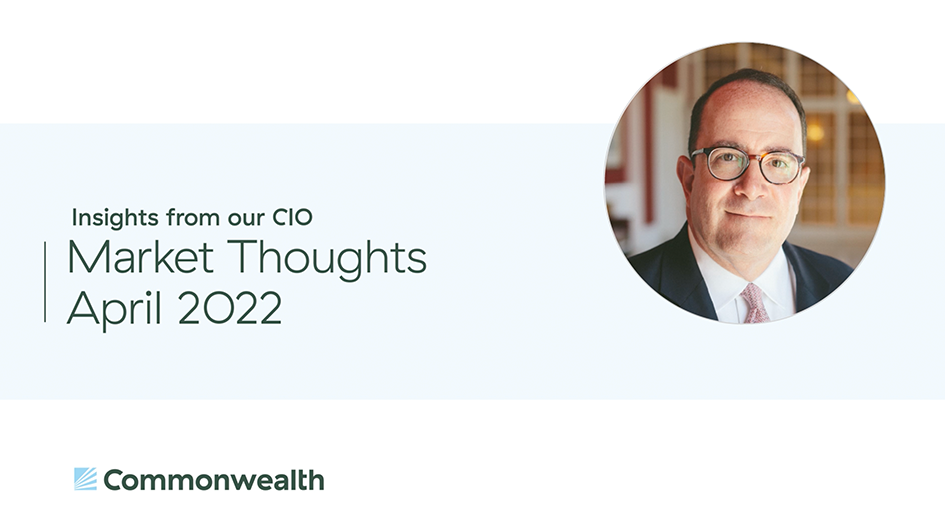My colleague Sam Millette, manager, fixed income on Commonwealth’s Investment Management and Research team, has helped me put together this month’s Market Risk Update. Thanks for the assist, Sam!
Markets rebounded in March, but it was not enough to offset earlier losses in January and February. The S&P 500 gained 3.71 percent in March, while the Dow Jones Industrial Average (DJIA) rose by 2.49 percent and the Nasdaq Composite increased by 3.48 percent. But the selloffs in January and February caused all three indices to end the quarter in negative territory. Despite the March gains, the S&P 500 lost 4.60 percent for the quarter, while the DJIA dropped 4.10 percent and the technology-heavy Nasdaq dropped 8.95 percent. The market decline to start the year is a reminder that risks remain that should be monitored going forward.














